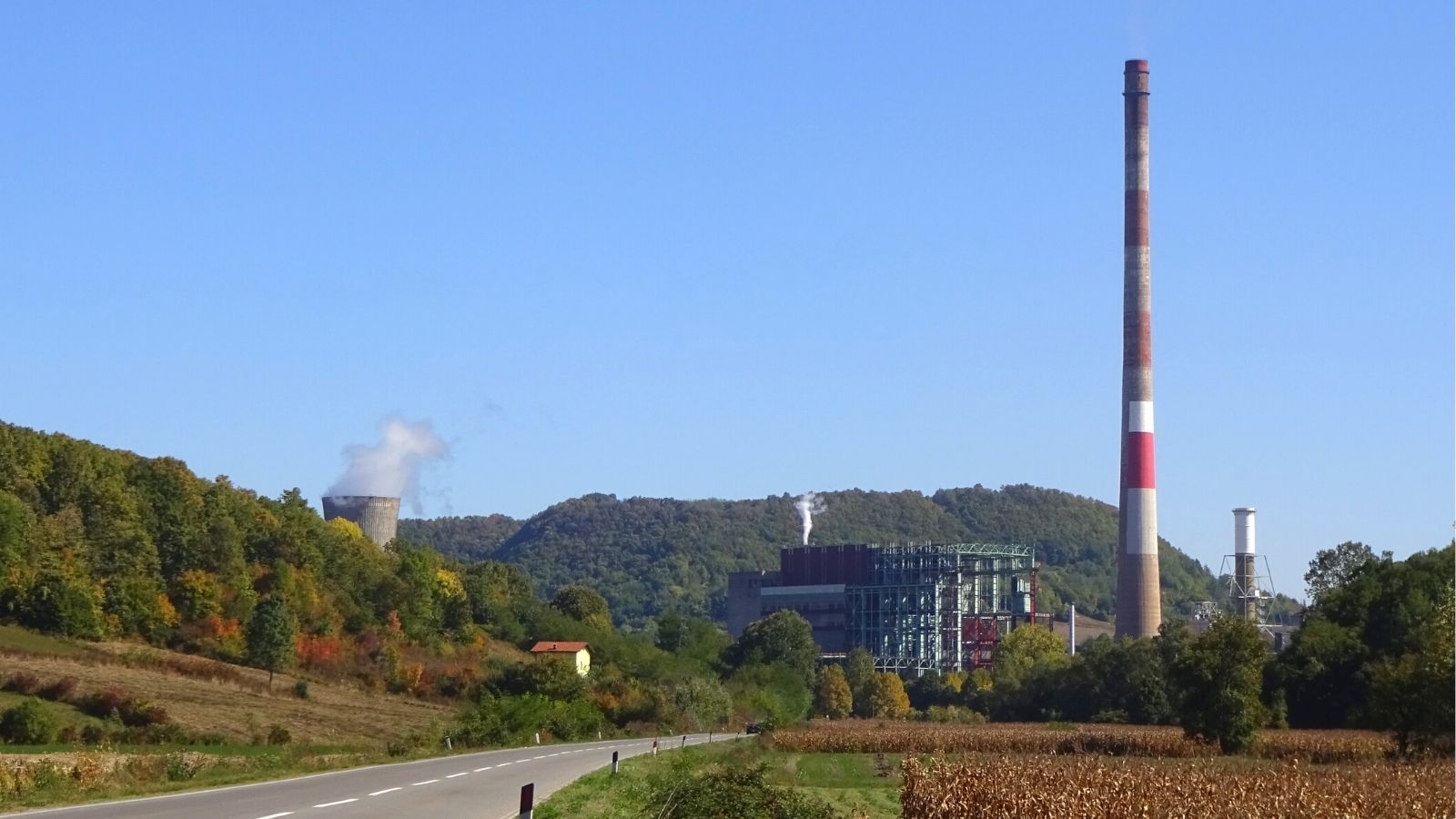Ugljevik power plant, Bosnia and Herzegovina
Commissioned in 1985, the 300 MW coal power plant in Ugljevik, Bosnia and Herzegovina, has become famous for emitting more sulphur dioxide than all of Germany’s coal power plants in 2019.

Stay informed
We closely follow international public finance and bring critical updates from the ground.
Background
To put things in perspective, for every GWh of electricity generated in 2019, Ugljevik emitted 50 tonnes of sulphur dioxide, that is 50 times more than EU’s worst polluter, Bełchatów in Poland, which emitted 1.1 tonnes of SO2/GWh.
The problem is not new, but the paradox is that a financing contract for installing desulphurisation (de-SOx) equipment at Ugljevik was signed more than 14 years ago, and the installation is still not functioning.
Financed by a loan from the Japan International Cooperation Agency (JICA) signed back in 2009, works on the de-SOx equipment started only in 2017 and test operations began in December 2019. It seemed likely that in 2020, SO2 emissions would be significantly lower, finally justifying the EUR 85 million investment.
However, in February 2020 technical problems were reported. The plant’s dust filters, overhauled more than three years ago by the Czech company Termochem at a cost of around EUR 10 million, were faulty, and their proper functioning is reported to be a precondition for desulphurisation. The plant operator spent an additional EUR 100,000 on a study that would show how to address the problem.
In 2021, RiTE Ugljevik, the power plant operator, sought ‘technical assistance’ to obtain the operating permit, adding an extra EUR 100,000 to the costs of this project. The contract was awarded to a company owned by the mayor of Zvornik, raising a host of questions on why the publicly-owned utility RiTE Ugljevik is not capable of obtaining an operating permit itself.
The plant finally obtained an operating permit for the desulphurisation equipment in November 2021. However, its 2023 sulphur dioxide emissions of 97,189 tonnes higher than those in 2021 (86,774 tonnes). Since 2018, when the Large Combustion Plants Directive entered force under the Energy Community Treaty plant’s emissions have increased instead of decreasing. The operator admits that the de-SOX is not working mainly because it is an ‘economic burden’, and also due to a lack of disposal facilities for the gypsum that results from the process.
Out of all Bosnia and Herzegovina’s coal power plants, Ugljevik’s emissions caused the most days of asthmatic symptoms in children, with over 12,000 days in 2020. This is equal to 48 per cent of all such impacts from the country’s coal power plants which are included in the National Emissions Reduction Plan. Ugljevik is also responsible for the highest number of cases of bronchitis in children due to dust emissions, and of hospital admissions because of cardiovascular and respiratory symptoms, with 1,142 cases of the former and 469 of the latter in 2020.
Latest news
Joint NGO statement: New EU budget must ensure dedicated funds for environmental protection and just transition in the Western Balkans
Press release | 28 May, 202568 civil society organisations have today issued a joint statement calling on the EU to ensure dedicated funds for environmental protection and just transition of coal-dependent regions in the Western Balkans in the post-2027 EU budget.
Read moreConcerns raised over new coal mining project in light of North Macedonia’s decarbonisation goals
Blog entry | 27 May, 2025CEE Bankwatch Network and Eko-svest have recently raised serious concerns regarding a proposed coal mining project in North Macedonia. The plan to open a new lignite mine in the Pelagonija region comes as a surprise, as the region is already affected by three other operating mines and the project contradicts the country’s coal phase-out commitments.
Read moreWestern Balkans: Civil society groups call on European Commission to strengthen support for just transition
Press release | 4 October, 2024A group of civil society organisations, including CEE Bankwatch Network, are calling on the European Commission and other actors to step up support for a just transition in coal-dependent communities in the Western Balkans.
Read moreRelated publications
The EBRD’s new Mining Operations Policy: A commentary on consultation process and content
Briefing | 2 November, 2012 | Download PDFThe long awaited EBRD Mining Operations Policy was released last week without much noise. It has taken the EBRD more than 3 years to prepare a document which had raised hopes it could improve the bank’s activities in the mining sector. Most of these hopes, however, have not been fulfilled.
New Slovene legal requirements for Šoštanj lignite power plant (TEŠ 6) regarding CCS
Advocacy letter | 17 October, 2012 |On September 8, 2012 new legislation entered into force in Slovenia that requires TEŠ to prepare an assessment of the CCS readiness for its new Unit 6. Pursuant to this legislation, proper assessment of the CCS readiness for the Unit 6 has not taken place yet. As a result, TEŠ has not met the legal requirements regarding the CCS assessment and therefore it is not possible to determine its CCS readiness under the Slovene law. Letter available as pdf: Letter to the European Investment Bank >>> Letter to the European Bank for Reconstruction and Development >>>
Money, and the EU’s climate agenda, to burn: EBRD mining strategy on a carbon collision course
Bankwatch Mail | 9 October, 2012 |With the EBRD due to sign off on its new mining strategy in November this year, 22 MEPs have pointed out in an open letter to European commissioners that given the state of the policy draft the bank risks contradicting the EU Resource Efficiency Roadmap and responsible mining principles. At risk of being compromised too, Bankwatch believes, are the EU’s 2020 strategy and EU commitments on climate change and biodiversity protection.
